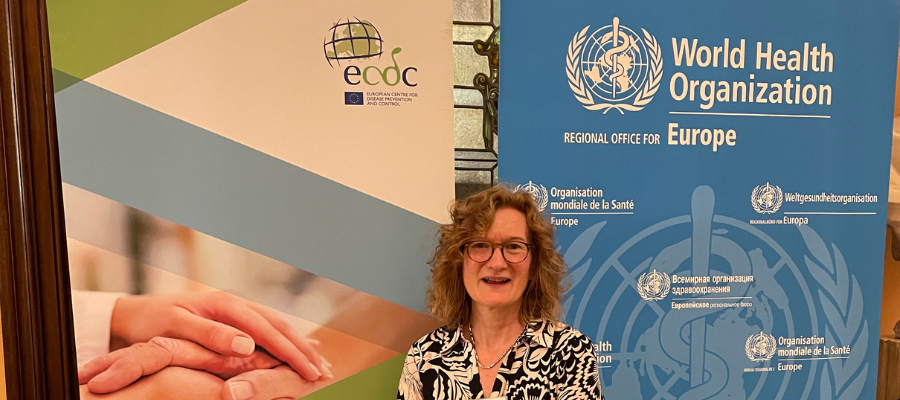Award-winning HIV expert shares expertise on global stage

Professor Claudia Estcourt was invited to share her expertise on HIV transmission elimination in Scotland at an international World Health Organization (WHO) and European Centre for Disease Prevention and Control (ECDC) meeting in Spain.
The joint WHO/ECDC meeting was held in Seville and Glasgow Caledonian’s world-renowned award-winning Professor of Sexual Health and HIV took centre stage.
Professor Estcourt, from the School of Health and Life Sciences’ Research Centre for Health (ReaCH), said: “In drawing together international experts from Europe and Central Asia, this meeting aimed to operationalise global and regional HIV goals and targets to end AIDS by 2030.
“I was honoured to present our work on HIV transmission elimination in Scotland and the underpinning rationale for how we are setting out to accomplish it by 2030.”
Much of the work on HIV elimination has been set out in the recent Scottish Government HIV transmission Elimination Strategy, which is led by the University’s Professors Estcourt, Rak Nandwani, Sharon Hutchinson and Nicola Steedman.
Professor Estcourt is co-leading, with Professor Hutchinson, a dedicated research programme entitled Beyond BBV (blood borne viruses), launched by Glasgow Caledonian University last December, with a £2.5 million 10-year investment, to support the Scottish Government's plans to become the first country in the world to both end HIV transmission and eliminate Hepatitis C as a major public health concern.
The Blood Borne Virus Prevention Team, led by Professors Hutchinson and Estcourt, won the prestigious Research Project of the Year Award at The Herald Higher Education Awards in June this year. They also the Emerald Publishing International Real Impact Award for demonstrating impactful results in BBV prevention among some of the most disadvantaged people in society through true collaborative working.
They are the forefront of international work to reduce the impact of HIV and other blood borne viruses. Their ground-breaking research into patterns of infection and how to prevent them is key to achieving the Scottish Government's ambitious target to end transmission of HIV in Scotland by 2030.
Professor Estcourt added: “It was very clear at the WHO/ECDC meeting that the academic and public health policy nexus at the heart of our Beyond BBV research programme was seen by many as critical to our success. Glasgow Caledonian was seen as a pioneer in academic leadership of health-related United Nations Sustainable Development Goals.”
